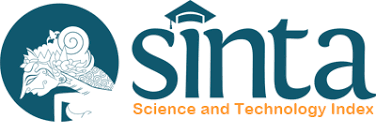The Relationship Of Knowledge Of Working Mothers To Mother's Attitude In Exclusive Breastfeeding In Infants Aged 0-6 Months
Keywords:
Knowledge, Attitude, working mother, Exclusive BreastfeedingAbstract
Breast milk is an important source of nutritional intake for babies. Breast milk is given to babies for 2 years. While exclusive breastfeeding is given to babies for 6 months without adding other foods or drinks. There is a lot of scientific evidence that shows that breast milk given exclusively during the first 6 months of life can meet the nutritional needs of babies to grow and develop. The purpose of this study is to determine the relationship between the knowledge of working mothers and the attitude of mothers in exclusive breastfeeding for infants aged 0-6 months. The research design used was a correlation study with a Cross Sectional approach. The population in this study was all working mothers who had babies aged 0-6 months at the Posyandu Sidomulyo Village, Semen District, Kediri Regency, totaling 21 respondents using total sampling. The variables consist of an independent variable, namely the knowledge of working mothers about exclusive breastfeeding and a dependent variable, namely the mother's attitude in exclusive breastfeeding. Data collection using questionnaires, data processing using editing, coding, scoring, tabulating and analyzed using Chi Square. The results showed that the knowledge of working mothers was good by 11 respondents (52.39%) and the attitude of mothers in exclusive breastfeeding was positive by 15 respondents (71.43%). Based on the Chi-Square analysis test shows p value = 0.000 (p value < 0.05). So that H1 is accepted means that there is a relationship between the knowledge of working mothers and maternal attitudes in exclusive breastfeeding in infants aged 0-6 months. Based on the results of the above research, it is expected to increase the knowledge and attitude of working mothers in exclusive breastfeeding for infants aged 0-6 months through counseling by health workers.
References
Ahmadi, Abu. 2007. Psikologi Sosial. Jakarta : Rineka Cipta.
Azwar, Syaifudin. (2011). Sikap Manusia Teori dan Pengukurannya. Yogyakarta : Pustaka Pelajar.
BPS, 2023. Presentase Bayi Usia Kurang dari 6 Bulan Yang Mendapatkan ASI Eksklusif. https://www.bps.go.id/id/statistics-table/2/MTM0MCMy/persentase-bayi-usia-kurang-dari-6-bulan-yang-mendapatkan-asi-eksklusif-menurut-provinsi.html
Detikhealth, 2020. "Pengertian ASI Eksklusif Serta Manfaatnya untuk Ibu dan Bayi" selengkapnya https://health.detik.com/berita-detikhealth/d-5119159/pengertian-asi-eksklusif-serta-manfaatnya-untuk-ibu-dan-bayi.
Dewi, Vivian Nanny L. (2011). Asuhan Kebidanan Pada Ibu Nifas. Jakarta : Salemba Medika.
Hasanah, Mas Saleha. dkk. 2021. Hubungan Tingkat Pengetahuan Ibu Tentang Imunisasi Dasar Terhadap Kepatuhan Pemberian Imunisasi Dasar Pada Bayi. Jurnal Borneo Cendekia Vol. 5 No. 1 Maret 2021.
Nursalam. (2011). Konsep dan Penerapan Metodologi Penelitian Ilmu Keperawatan. Pedoman Skripsi, Tesis, dan Intrumen Penelitian. Edisi 2. Jakarta : Salemba Medika.
Prasetyono, Dwi sunar. (2009). Buku Pintar ASI eksklusif. Pengenalan, Praktik, dan Kemanfaatan-kemanfaatannya. Paduan Praktis Ibu Menyusui. Jakarta : Diva Press.
Triatmi Andri Yanuarini, dkk , 2014. Hubungan Pengetahuan Dengan Sikap Ibu dalam Pemberian ASI Eksklusif di Wilayah Kerja Puskesmas Pranggang Kabupaten Kediri. Jurnal Ilmu Kesehatan Vol.3 No. 1 Nopember 2014
Sembiring, Tiangsa. 2022. ASI Eksklusif. https://yankes.kemkes.go.id/view_artikel/1046/asi-eksklusif
Suryanto,2012. Ibu Bekerja Harus Tetap Perhatikan ASI Eksklusif. http://www.antarasumut.com/berita-terkini/ibu-bekerja-harus-tetap-perhatikan-asi-eksklusif/
Wawan dan Dewi. (2010). Pengetahuan, Sikap, dan Perilaku Manusia. Yogyakarta : Nuha Medika.

















